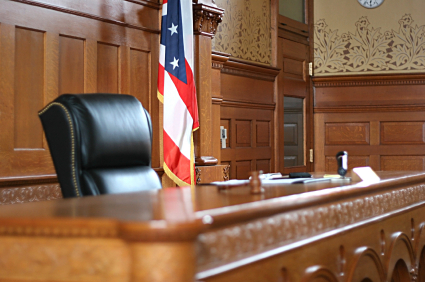The nation’s highest court gave police broad powers to stop vehicles based on anonymous tips in a recent opinion. In the Navarette v. California case, the United States Supreme Court ruled that the police can pull over a vehicle based on an anonymous tip that the driver is intoxicated without observing any traffic violations themselves, and such a traffic stop does not violate the Fourth Amendment.
For defense attorneys, this opinion is a crushing defeat.
But for prosecutors, the Navarette ruling is the most important victory in the war on drunk driving in decades.
The case involved two men, Lorenzo and Jose Prado Navarette, who were driving a pickup truck in Mendocino County, California, when they were pulled over by the California Highway Patrol. The trooper who curbed the truck did so because the agency received an anonymous call from a woman who claimed the truck had run her off the roadway. The trooper observed no traffic violations whatsoever.
The trooper smelled marijuana and a search uncovered more than 30 pounds of marijuana in the bed of the pickup.
The defendants challenged the search, arguing that the traffic stop, based on an anonymous tip, violated their constitutional rights. All the California courts upheld the search, and the case made its way to the Supreme Court.
In a divided 5-4 vote, the Supreme Court also upheld the stop and subsequent search. Justice Clarence Thomas wrote the majority opinion, joined by Chief Justice John Roberts, Justices Samuel Alito, Stephen Breyer, and Anthony Kennedy.
Justice Antonin Scalia wrote a dissenting opinion, which was joined by Justices Ruth Bader Ginsburg, Elena Kagan, and Sonia Sotomayor.
The court began its analysis with the premise that brief investigative stops are lawful when an officer has “a particularized and objective basis for suspecting the particular person stopped of . . . criminal activity.” But reasonable suspicion takes into account the “totality of the circumstances.” An important aspect of the totality of the circumstances is the reliability of the information. While an anonymous tip is usually not reliable, it may be under some circumstances.
Here, the 911 call was made by a person purporting to be an eye witness. Further, it was made only minutes after the incident occurred. This suggested there was little time to fabricate the story.
And finally, the technologies available to law enforcement allow them to trace phone calls, which would discourage a person from making a false report to 911.
The description provided by the 911 caller suggested the driver was intoxicated. Although such an incident could also be explained by careless driving, the police are not required to rule out innocent conduct before making a determination of reasonable suspicion to curb a vehicle. Finally, it is incumbent on officers to protect motorists on the road from impaired drivers. The danger posed by drunk drivers gives officers an exception to act on anonymous tips, even where the police do not observe any bad driving.
The high court’s opinion is troublesome. First, it begins with an unproven assertion. There were no means available for the police to determine whether 911 caller’s assertion, that she had been run off the roadway, was true to begin with. Second, the police used the unproven assertion to support an assumption that the driver must have been drunk. If the incident really happened, it could be explained by negligence. The court’s opinion thus allows law enforcement to act on an unproved claim and assumption.
Justice Scalia, known to be a conservative but also a champion for individual liberties guaranteed by the Constitution, predicted the fallout from the majority’s decision in his dissent:
“Law enforcement agencies follow closely our judgments on matters such as this, and they will identify at once our new rule: So long as the caller identifies where the car is, anonymous claims of a single instance of possibly careless or reckless driving, called in to 911, will support a traffic stop. This is not my concept, and I am sure would not be the Framers’, of a people secure from unreasonable searches and seizures.”
“The Court’s opinion serves up a freedom-destroying cocktail consisting of two parts patent falsity: (1) that anonymous 911 reports of traffic violations are reliable so long as they correctly identify a car and its location, and (2) that a single instance of careless or reckless driving necessarily supports a reasonable suspicion of drunkenness. All the malevolent 911 caller need do is assert a traffic violation, and the targeted car will be stopped, forcibly if necessary, by the police. If the driver turns out not to be drunk (which will almost always be the case), the caller need fear no consequences, even if 911 knows his identity. After all, he never alleged drunkenness, but merely called in a traffic violation—and on that point his word is as good as his victim’s.”
Illinois courts are bound by the Supreme Court decision. This means that in tipster cases, State’s Attorneys now have a decided advantage in court.


